“This post contains affiliate links, and I will be compensated if you make a purchase after clicking on my links.”
It’s a topic pet parents don’t think about that often, but should — cleaning the dog’s toys. Unless you’ve got one of those pups that destroys his toys in a matter of minutes, there’s a good chance his favorite stuffed toy could use a little freshening up or his favorite rubber bone could be harboring some serious dirt and grime.
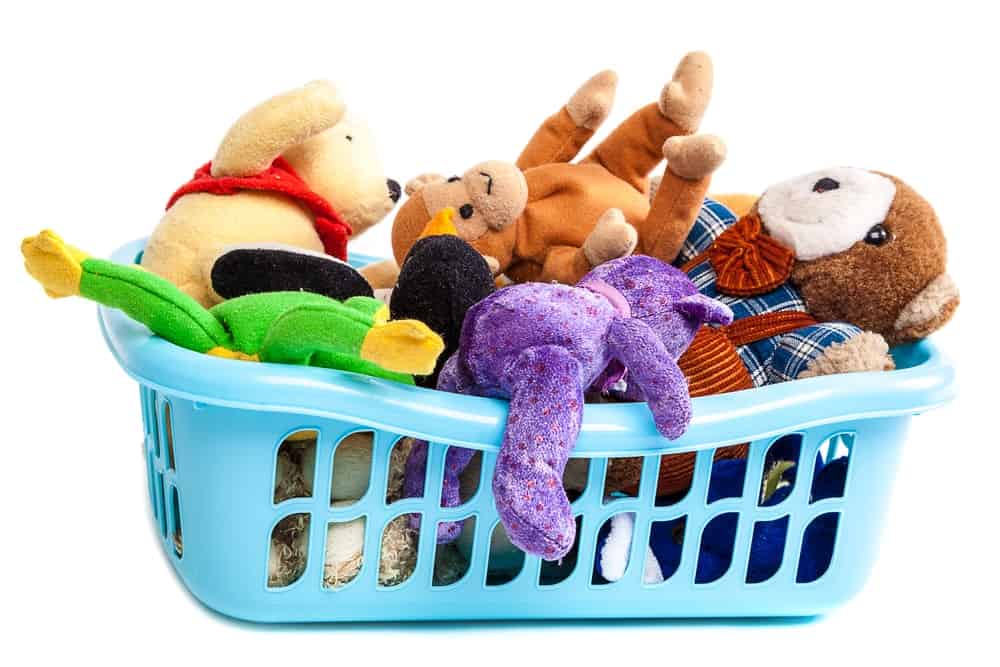
Because dog’s generally use their mouths to play with their toys, it’s important that their toys be cleaned and disinfected on a regular basis. Not only to wash away dirt and grime, but to kill bacteria and other germs that tend to thrive on those slobber-laden, dragged-through-the-dirt, tugged-on, chewed-on, and loved-to-the-extreme toys.
When Is It Time to Toss a Toy?
You’ll want to inspect and evaluate your dog’s toys regularly and, in some cases, it’s better to toss and replace them than try to clean or repair them.
You’ll know it’s time to toss a toy if it’s too heavily chewed and chomped to be sufficiently cleaned, if it’s torn or tattered to the point that stuffing is falling out, or if it has parts and pieces just starting to fall or break off that can easily become a choking hazard or intestinal blockage if swallowed.
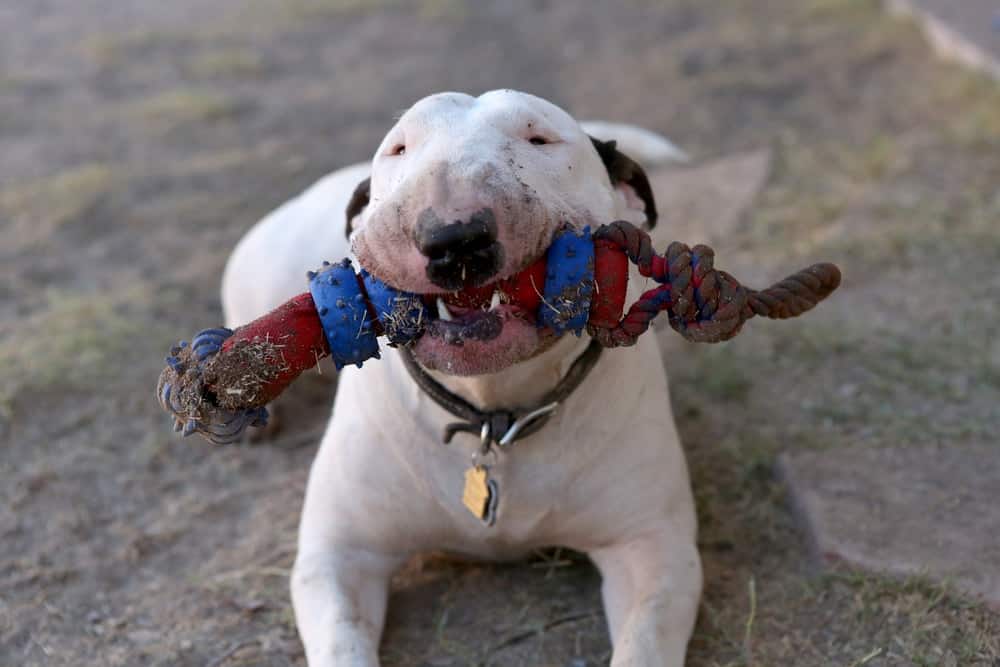
Cleaning Your Dog’s Toys
Many toys include care and cleaning instructions, often printed right on the toy or on a tag. Whenever possible, follow the manufacturer’s recommendations for cleaning and disinfecting dog toys. If no such instructions exist, use your best judgement along with the following guidelines:
Rubber, Plastic, or Nylon Chew Toys:
While you may be inclined to wash plastic, rubber, and nylon dog toys in a dishwasher, be certain to ONLY use this method if the manufacturer has specifically stated the toy is dishwasher safe. The scalding water and heat of a dishwasher’s drying cycle could affect the structural integrity of the toy, causing it to both lose shape and structure as well as potentially releasing unsafe chemicals.
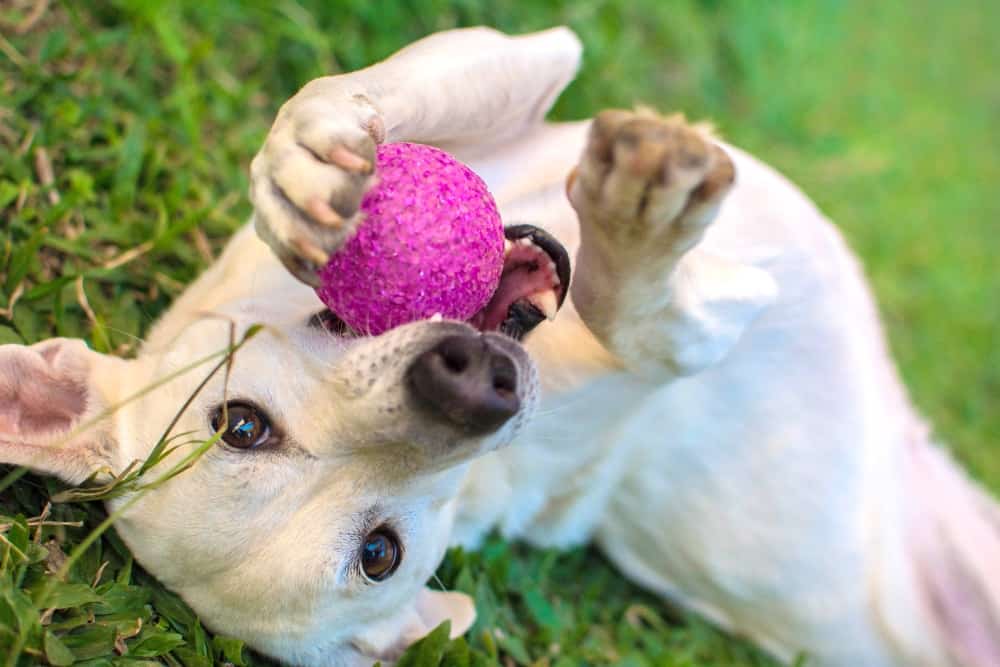
Instead, hand wash these types of toys in a sink or tub with warm water and and antibacterial dish soap. Use a toothbrush or scrub brush to get dirt and drool from crevices.
For especially grimy, gunky toys, pre-soak in a solution of one part vinegar to two parts water for about 15 minutes before washing with soap and water.
Thoroughly rinse with clean water and allow toys to fully dry – be especially mindful of toys that may fill with water while they’re being washed – before returning them to your dog’s toy bin.
Rope Toys:
Rope toys can very quickly become a breeding ground for bacteria, mold, and other germs as the soft, absorbent fibers trap moisture and drool. Unfortunately, these toys will require a different method of cleaning than plastic or rubber toys.
A recent study found that microwaving household tools, like sponges and dishrags, was an effective method for killing bacteria, mold, yeast, and other icky stuff that grows in moist, cool environments. Your dog’s rope toys – those that are ONLY rope, without added elements like plastic rings, bones, or any metal of any kind – can be quickly and easily disinfected in the microwave. To disinfect your rope toys, make sure they’re completely wet by soaking in water for a minute or so, then microwave for about one minute to kill any living organisms in the toy.
Of course, microwaving rope toys will only disinfect them, but will not do much about dirt and grime build up. To clean these toys, simply toss in the laundry. Because they’re durable and designed to be tugged and chewed, they can be dried in a dryer as well.
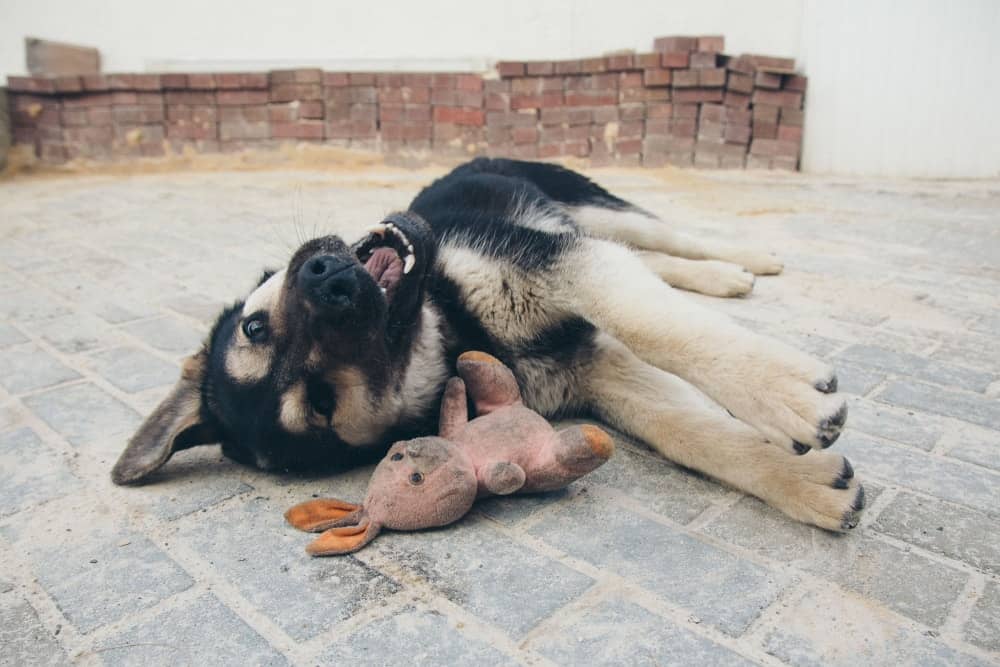
Plush Toys (with or without squeakers, crinkles, or stuffing):
Like rope toys, plush toys can harbor all sorts of nasty microbes and need to be cleaned more frequently than other types of toys. The very best way to clean and disinfect stuffed or plush toys is to launder them in the washing machine.
When washing plush toys, use your judgement in determining which cycle will work best! Sturdy, heavier-duty dog toys should hold up quite well in a normal wash cycle – just stick with cold or warm water instead of hot, which could damage stuffing material, squeakers, or crinkle filling. If you aren’t sure your dog’s favorite stuffed toy will survive a normal wash cycle, opt instead for the delicates or gentle wash setting. Consider washing toys inside a mesh bag to prevent them from taking too much of a beating from your washing machine.
Most heavy-duty dog toys will do well in a normal dry cycle, too. But, more delicate toys, those with squeakers, plastic parts, or crinkle material, should be dried either in a low-heat cycle or hung on a line to dry. To speed along the drying process, squeeze any excess water out of the toys before drying or hanging.
Caring for Toys Between Cleanings:
Remember not to neglect your fur kids’ toys! Take some time every few weeks to sort, inspect, toss, or repair toys as needed. Remember, dog toys are generally built to be chewed, tugged, tossed, buried, and loved. But, not all dog toys are created equal. If you’ve got a serious chewer, consider investing in “indestructable dog toys” that will withstand the abuse without becoming a hazard to your dog.
Don’t leave toys outside in the elements! Rain and snow soaked toys can quickly become breeding grounds for mold and mildew, toys left baking in the sun can become brittle and, in extreme heat, can begin to leach dangerous chemicals.
As a basic rule of thumb, remember, when in doubt, throw it out!
Do you have any additional tips for the care and cleaning of your dog’s toys? Share it with us in a comment below!
And, if you found this guide helpful, Pin it!
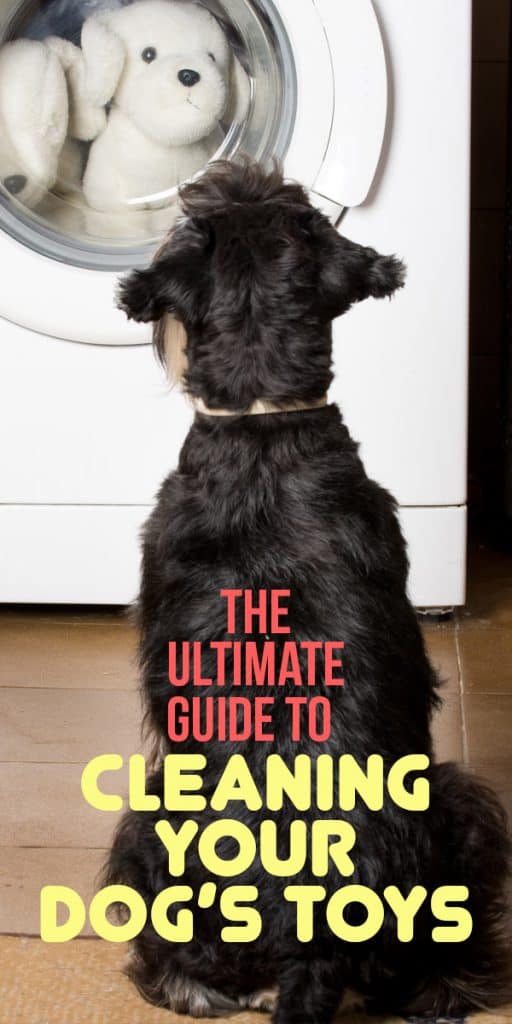

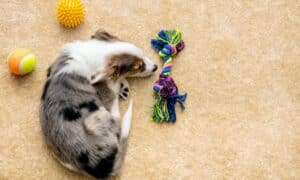













Pingback: Partner Post: Dirty Half Dozen – The 6 Most Crucial Tactics To Prevent Germs Affecting Your Family’s Health